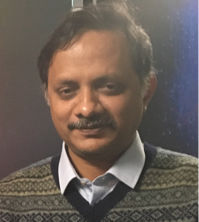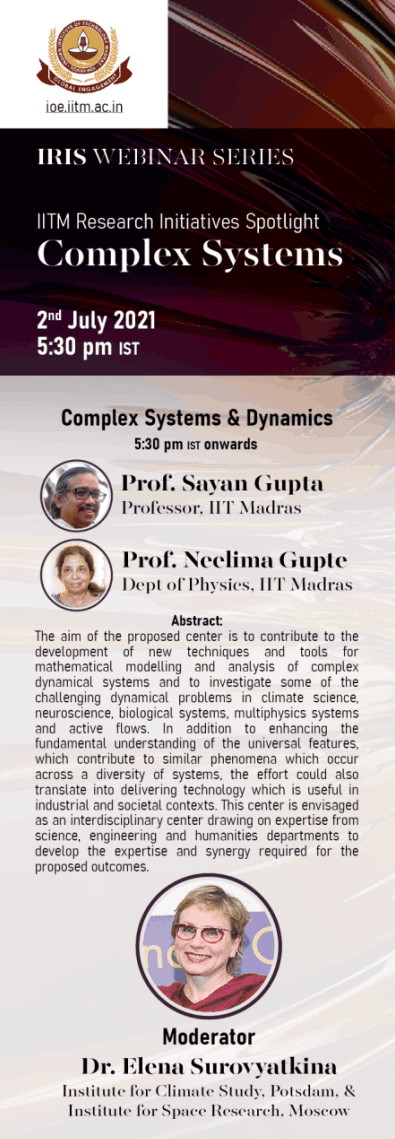
20th Seminar: Complex Systems & Dynamics IIT Madras
Prof V Srinivasa Chakravarthy
Department of Biotechnology, IIT Madras
Modeling the basal ganglia to understand Parkinson’s disease
Date: November 3, 2021
Time: 4:00 PM (+05:30 UTC)
Weblink
Abstract: Basal Ganglia (BG) is a deep brain circuit with wide-ranging brain functions including action selection, reinforcement learning, motor preparation, sequence generation, goal directed behavior and working memory. There is a growing consensus to explain the BG functions using concepts from Reinforcement Learning (RL). Actor, Critic and Explorer are three key modules in RL framework. Although cortical substrates for exploration have been found, no subcortical counterparts of the same have been identified.
The talk presents and develops the consequences of a hypothesis that the Indirect Pathway — a part of the BG, — is the subcortical substrate for exploration. This hypothesis seems to supply a missing piece in the application of RL concepts to BG anatomy. The talk outlines how this novel approach to BG functional anatomy can explain a range of BG functions. As specific applications of the above modeling approach, models of Parkinsonian reaching movements and Parkinsonian gait are presented. The model is also extended to present a theory of “willed action” i.e. how does brain produce what we understand as “voluntary movement”? The talk concludes with an outline of how computational modeling can used to develop a quantitative, model-driven framework for treatment of Parkinson’s disease.
The talk is given in a “popular science” style so as to be accessible to the general audience.
Bio: V. Srinivasa Chakravarthy is currently a professor at the Department of Biotechnology, Indian Institute of Technology Madras, where he heads the Laboratory for Computational Neuroscience. He received his doctoral degree from the University of Texas at Austin and postdoctoral training from Baylor College of Medicine, Houston. His research interests include computational neuroscience and machine learning. He is an author of two books on neuroscience. He is the inventor of a novel script called Bharati that can express all the major Indian languages.
Website
